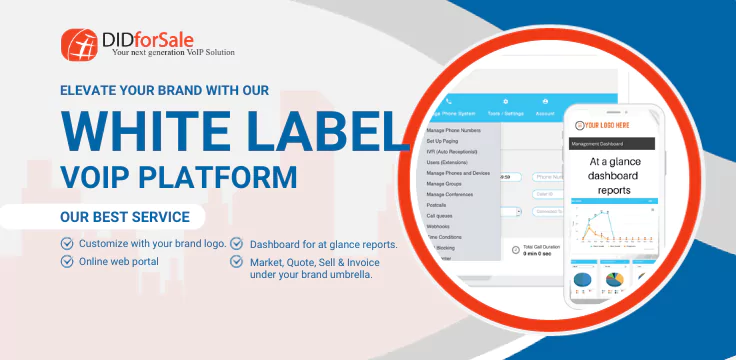The contact center industry is rapidly evolving, and new communication technologies are playing a significant role in shaping its future. One of the most transformative technologies is Voice over Internet Protocol (VoIP), which has the potential to revolutionize the way contact centers operate. This article explores how VoIP technology is transforming contact centers and what the future holds.
Greater Flexibility
VoIP technology offers greater flexibility for contact centers. Agents can work remotely from anywhere with an internet connection, enabling contact centers to expand their operations and better serve customers in different time zones. This remote work model has become more prevalent since the COVID-19 pandemic, where many contact centers had to quickly adapt to remote work models to maintain their operations. Here are some examples of how VoIP technology enables greater flexibility:
-
- Cloud-based VoIP solutions: Contact centers can adopt cloud-based VoIP solutions, which enable agents to access the system from anywhere with an internet connection. This allows contact centers to easily scale their operations up or down as demand fluctuates.
- Mobile applications: VoIP technology can also be integrated with mobile applications, enabling agents to make and receive calls from their mobile devices. This can be especially useful for remote agents who need to be mobile to serve customers on the go.
Better Customer Experience
VoIP technology also enhances the customer experience by offering superior call quality, faster call routing, and advanced call features. Here are some examples of how VoIP technology can enhance the customer experience:
-
- Call quality: VoIP technology offers high-definition audio, which means calls are clearer and more natural-sounding. This improves the quality of the conversation between the customer and the contact center agent, reducing misunderstandings and frustration.
- Call routing: VoIP technology allows contact centers to route calls based on the customer’s needs, reducing hold times and improving first call resolution rates. This ensures that customers get the help they need quickly and efficiently.
- Advanced features: VoIP technology enables contact centers to offer advanced features such as call queuing, call recording, call forwarding, and interactive voice response (IVR). These features help customers get the help they need quickly and efficiently, increasing satisfaction.
Cost Savings
VoIP technology is more cost-effective than traditional phone systems, as it eliminates the need for expensive hardware, reduces maintenance costs, and allows for better scalability. Here are some examples of how VoIP technology can reduce costs:
-
- Hardware costs: VoIP technology eliminates the need for traditional phone hardware, which can be expensive to purchase and maintain. Instead, VoIP phones can be connected to the internet, reducing hardware costs.
- Maintenance costs: VoIP technology is easier to maintain than traditional phone systems, as most maintenance tasks can be performed remotely. This reduces the need for onsite technicians and lowers maintenance costs.
- Scalability: VoIP technology is highly scalable, enabling contact centers to easily add or remove agents as needed. This allows contact centers to adjust their operations to match the volume of customer calls, optimizing their resources and reducing costs.
Advanced Analytics
VoIP technology enables contact centers to gather and analyze a wealth of data about customer interactions, including call duration, wait times, and call resolution rates. This information can be used to optimize operations, improve agent performance, and enhance the overall customer experience. Here are some examples of how VoIP technology can provide advanced analytics:
-
- Call data analysis: VoIP technology can capture and analyze call data, enabling contact centers to gain insights into customer behavior, such as call volumes, call duration, and call resolution rates.
- Agent performance analysis: VoIP technology can also capture and analyze agent performance data, such as call handling times, call transfers, and call resolution rates. This enables contact center managers to identify areas for improvement and provide targeted coaching and training to improve agent performance.
-
- Customer satisfaction analysis: VoIP technology can also be used to measure customer satisfaction through post-call surveys and sentiment analysis. This information can be used to identify areas where the contact center is performing well and where improvements can be made to enhance the overall customer experience.
As mentioned, VoIP technology has the potential to transform the contact center industry, and DIDforSale is at the forefront of providing VoIP solutions to help contact centers stay ahead of the curve. DIDforSale offers a comprehensive suite of VoIP services that enable contact centers to take advantage of the benefits of VoIP technology, including greater flexibility, better customer experience, cost savings, and advanced analytics. DIDforSale’s solutions include cloud-based VoIP phone systems, SIP trunking, international phone numbers, and more. By partnering with DIDforSale, contact centers can improve their operations, enhance their customer experience, and stay competitive in a rapidly changing industry.





